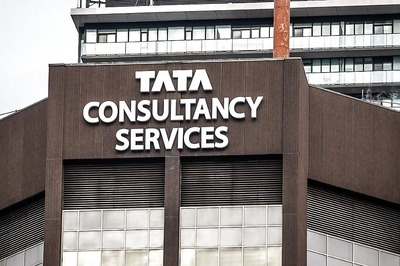
views
New Delhi: When the Securities Exchange Board of India (Sebi) started scanning an entire spectrum of IPOs launched over 2003, 2004 and 2005, it ended digging up more dirt and probably prevented a larger conspiracy to hijack the market.
Here is a lowdown on the IPO scam:
What is the scam?
It involved manipulation of the primary market—read initial public offers (IPOs)—by financiers and market players by using fictitious or benaami demat accounts.
While investigating the Yes Bank scam, Sebi found that certain entities had illegally obtained IPO shares reserved for retail applicants through thousands of benaami demat accounts.
They then transferred the shares to financiers, who sold on the first day of listing, making windfall gains from the price difference between the IPO price and the listing price.
What is an IPO?
An IPO is the first sale of an entity's common shares to public investors. When an entity wants to enter the market, it makes its share available to common investors in form of an auction sale.
Each application for an IPO has to be within a cut-off figure, which is eligible for allotment in the retail investors’ category. But in this case, financiers and market players illegally cornered these retail investors' shares.
When was the scam detected?
The IPO scam came to light in 2005 when the private 'Yes Bank' launched its initial public offering. Roopalben Panchal, a resident of Ahmedabad, had allegedly opened several fake demat accounts and subsequently raised finances on the shares allotted to her through Bharat Overseas Bank branches.
The Sebi started a broad investigation into IPO allotments after it detected irregularities in the buying of shares of YES Bank’s IPO in 2005.
What triggered the Sebi probe?
On October 10 last year, an Income Tax raid on businessman Purushottam Budhwani accidentally found he was controlling over 5,000 demat accounts. Sebi finds this suspicious.
On December 15, Sebi declared results of its probe, how a few people cornered a large chunk of YES Bank IPO shares.
On January 11 this year, Sebi discovered huge rigging in the IDFC IPO.
Roopalben Panchal was found to be controlling nearly 15,000 demat accounts.
It was found that once they obtained these shares, the fictitious investors transferred them to financiers.
The financiers then sold these shares on the first day of listing, reaping huge profits between the IPO price and the listing price. The Sebi report covered 105 IPOs from 2003-2005.
PAGE_BREAK
The Sebi probe covered several IPOs dating back to 2005, 2004 and 2003 to detect misuse. These included the offerings of Jet Airways, Sasken Communications, Suzlon Energy, Punj Lloyds, JP Hydro Power, NTPC, PVR Cinema, Shringar Cinema and others. A lot more dubious accounts across several IPOs are expected to tumble out in the next few days.
It also detected similar irregularities in the IDFC IPO, in which over 8 per cent of the allotment in the retail segment was cornered by fictitious applicants through multiple demat accounts.
Who is Roopalben Panchal?
Roopalben Panchal of IndiaBulls Securities is allegedly the mastermind of the scam. Finance Ministry officials are expected to act against her soon.
How is this different from Harshad Mehta’s scam?
The securities scam involved price manipulation in the secondary market, read stocks. Whereas in this case, the manipulation happened in the primary market—even before the shares (IPOs) entered the stocks market.
This time, fraudsters targeted the primary market to make a quick buck at the expense of the gullible small investors.
Direct Participants (DPs) used retail applicants’ shares for reaping benefits in the stock market.
How big is the scam?
Apart from the YES Bank fraud, Sebi reportedly has definite data about two IPOs where retail allotments were rigged, but market observers believe the scam is far bigger. The Yes Bank and IDFC cases are only a tip of an iceberg, say analysts.
The Sebi probe has identified more operators and some market intermediaries involved in the misuse of the initial allotment process in public offerings dating back to ’04-05.
The Income-Tax Department in Ahmedabad has found that two major accused, Panchal and Sugandh Investments, have together made Rs 60.62 crore in 18 months.
Role of Depository Participants
> Suzlon Energy IPO: Rs 1,496.34 cr (September 23-29, 2005)
Key operators used 21,692 fictitious accounts to corner 3,23,023 shares which is equal to 3.74 per cent of the total number of shares allotted to retail individual investors.
> Jet Airways IPO: Rs 1899.3 crore (Feb 18-24, 2005)
Key operators used 1,186 fake accounts for cornering 20,901 shares which is equal to 0.52 per cent of the total number of shares allotted to retail investors.
> National Thermal Power Corporation IPO Rs 5,368.14 crore (Oct 7-14, 2004).
12,853 afferent accounts were used for cornering 27,50,730 shares representing 1.3 per cent of the total number of shares allotted to retail investors.
> Tata Consultancy Services IPO: Rs 4,713.47 crore
14,619 'benami' accounts were used to corner 2,61,294 shares representing 2.09 per cent of the total shares allotted to retail individual investors.


















Comments
0 comment